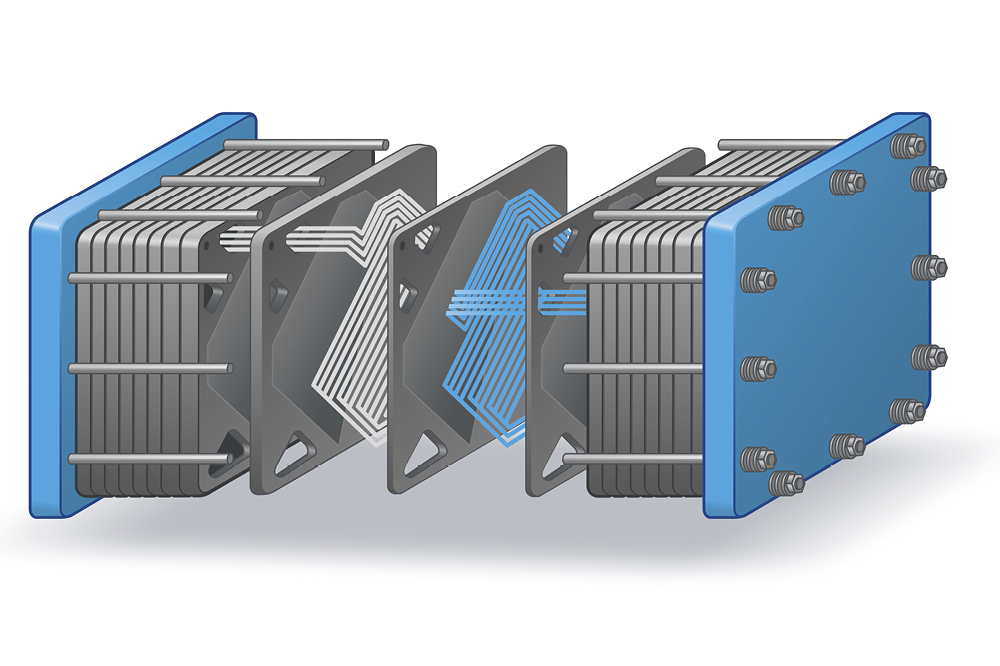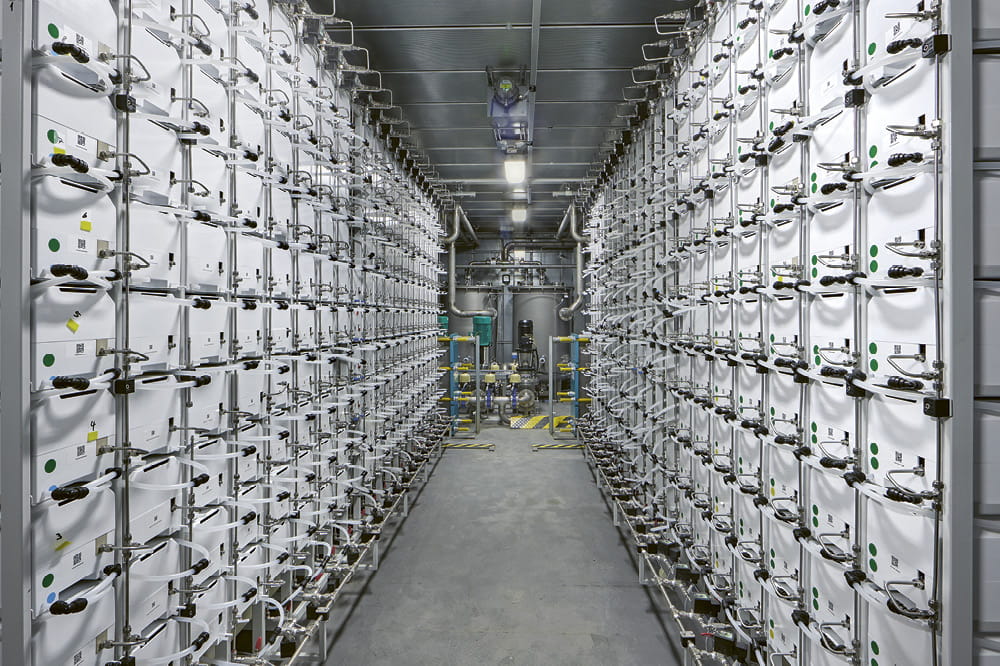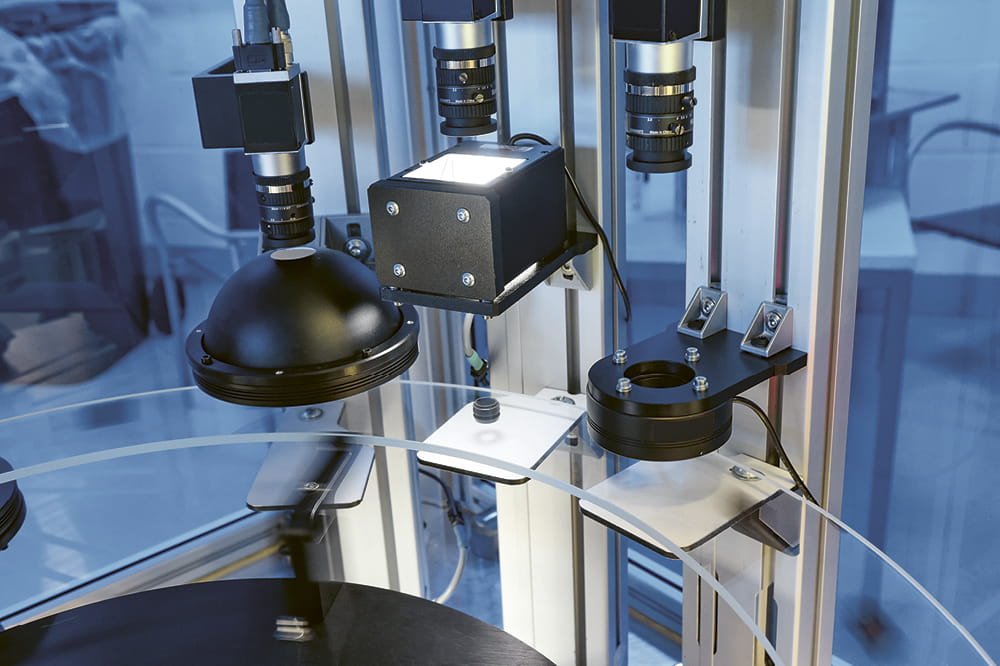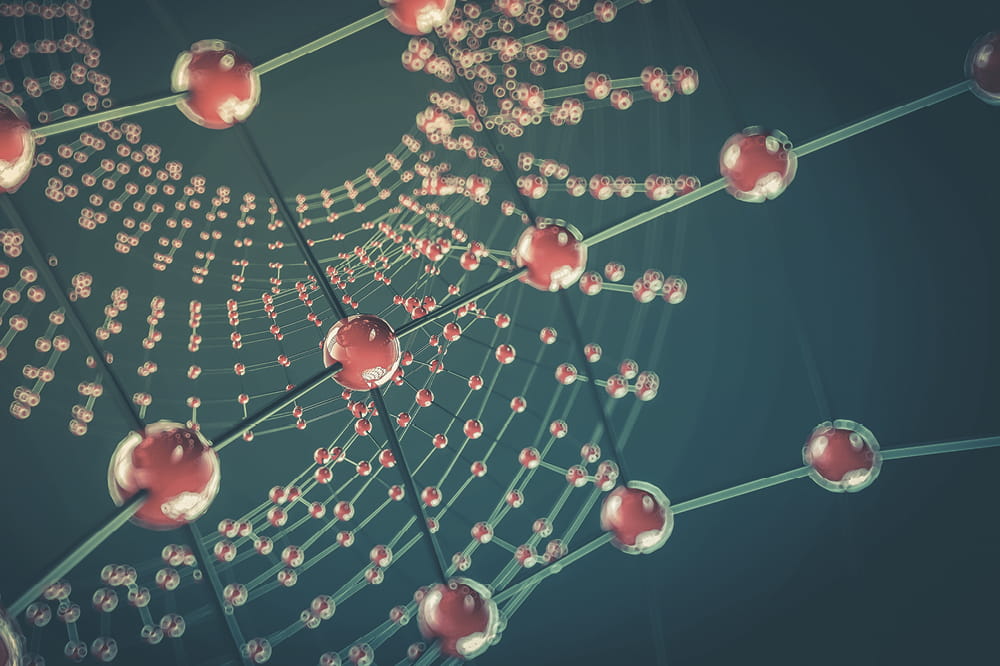Obtain news and background information about sealing technology, get in touch with innovative products – subscribe to the free e-mail newsletter.

Lifelong
With its advanced simulation methods, Freudenberg Sealing Technologies has succeeded in forecasting the decades-long lifespans of seals. What has already become the standard in wind power is making headway in other sectors as well.
The world’s largest offshore wind power facility currently rises 280 meters (nearly 920 feet) above the surface of the ocean. At the end of 2022, the prototype produced its first kwH of power near Østerild, Denmark. With an output of 14 megawatts, it is expected to generate 80 gigawatts of electric power annually – about as much energy as 25,000 electric cars consume in a year, assuming each is traveling 15,000 kilometers (about 9,320 miles) annually. Offshore wind power is striving to break record after record.
Their CO2 balance sheet is only slightly clouded by the huge quantities of concrete and steel that are consumed in their construction. The Fraunhofer Institute for Building Physics calculates that an offshore wind turbine releases a maximum of 11.8 grams of greenhouse gases once you add the emissions produced during its construction into its operations. The calculation makes something else clear: The longer a wind power facility lasts, the more climate-friendly its balance sheet will be.
It was not that long ago when experts in wind power expected a minimum lifespan of 25 years. Now operators expect up to 35 years. What is good from the standpoint of sustainability is posing new challenges to Freudenberg Sealing Technologies engineers. After all, they have to design the seals that are used between the mast and the supportive steel pillars – which experts call “monopiles” – for a lifespan of three decades as well. Since the seals protect screw connections from corrosive sea water, their flawless functioning until the turbine’s final day of operation is a necessity.
It is impossible to achieve these long lifespans solely with tests on a test stand. That is why Freudenberg first investigates certain material characteristics in six-week stress tests. An advanced version of the Arrhenius algorithm then comes into play. Over the past few years, Freudenberg materials experts have systematically continued developing a well-known algorithm named after the chemist and Nobel Prize winner Svante August Arrhenius. The process makes it possible to extrapolate lifespans. Freudenberg experts significantly improved the longevity model by coupling chemical and physical effects with the mechanical and structural behavior of the material.
A Proven Tool
“The systematic development of simulation tools is a key part of modern material development, since our customers expect declarations from us that go beyond the usual 1,000-hour endurance tests in laboratories,” said Dr. Boris Traber, who is in charge of advanced material development at Freudenberg Sealing Technologies. “There are now very good models available to calculate the long-term aging behavior of elastomers used in static seals, and they have already come into use in many of our customers’ processes. We worked with Freudenberg Technology Innovation to establish a new method to determine the impact of damage from oxygen – so-called thermo-oxidative aging – and to integrate the values into the models. This has made database values for more and more materials available, and experts can use them.”
But Traber says this success is not enough. There are many other factors that influence the lifespan of a seal. And static seals are not the only varieties that have a great deal to withstand. “Many static seals are overlaid with dynamic oscillations, a frame seal in an engine block of a gas turbine that operates at very high temperatures, for example,” Traber said. The manufacturers of these turbines would like to see operating times of up to 99,000 hours. In these applications, it is not enough to look at the sealing materials. It is primarily the interplay between the seal and the medium being sealed that has the crucial impact on aging. In gas turbines, there are two media involved: motor oil and water as a coolant. “Even if that is the pinnacle of lifespan forecasting today, our standard has to be the ability to forecast challenges of this kind in the future,” Traber said.
Long-term durability is even becoming more important to the auto industry. Manufacturers and suppliers are increasingly asking for long operating lives under extreme conditions – for seals used in electric drives or in the exhaust systems for hydrogen motors, for example. The same rule applies here: The longer the life, the more sustainable the product.
Learn more about our materials portfolioThis article originally appeared in ESSENTIAL, Freudenberg Sealing Technologies’ corporate magazine that covers trends, industries and new ideas. To read more stories like this, click here.
More information about Onshore/Offshore Wind Turbines
Do you have any questions about sealing solutions? Get in touch with us.
More Stories About Technology

Join Us!
Experience Freudenberg Sealing Technologies, its products and service offerings in text and videos, network with colleagues and stakeholders, and make valuable business contacts.
Connect on LinkedIn! open_in_new










